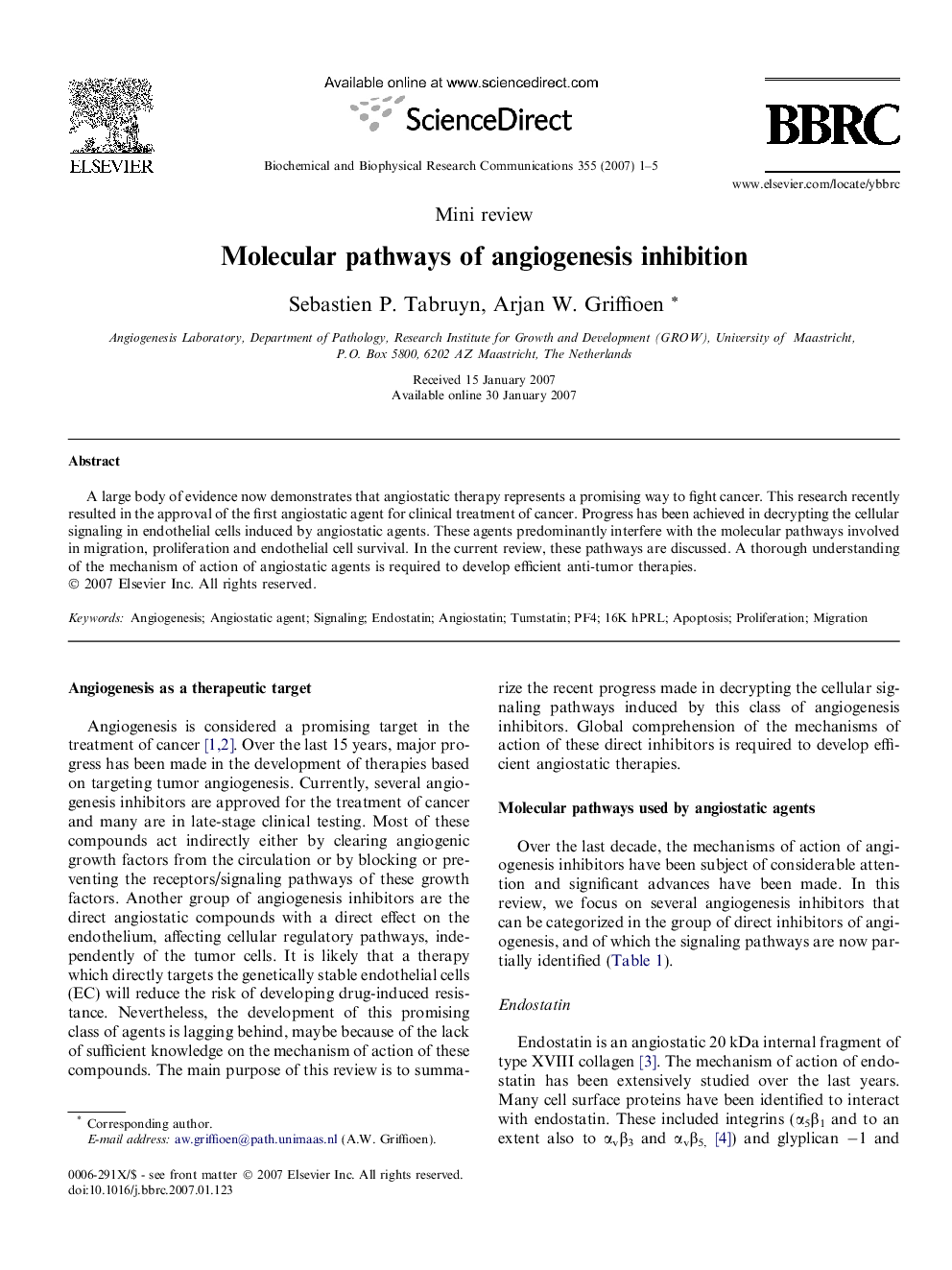| Article ID | Journal | Published Year | Pages | File Type |
|---|---|---|---|---|
| 1937471 | Biochemical and Biophysical Research Communications | 2007 | 5 Pages |
Abstract
A large body of evidence now demonstrates that angiostatic therapy represents a promising way to fight cancer. This research recently resulted in the approval of the first angiostatic agent for clinical treatment of cancer. Progress has been achieved in decrypting the cellular signaling in endothelial cells induced by angiostatic agents. These agents predominantly interfere with the molecular pathways involved in migration, proliferation and endothelial cell survival. In the current review, these pathways are discussed. A thorough understanding of the mechanism of action of angiostatic agents is required to develop efficient anti-tumor therapies.
Related Topics
Life Sciences
Biochemistry, Genetics and Molecular Biology
Biochemistry
Authors
Sebastien P. Tabruyn, Arjan W. Griffioen,
